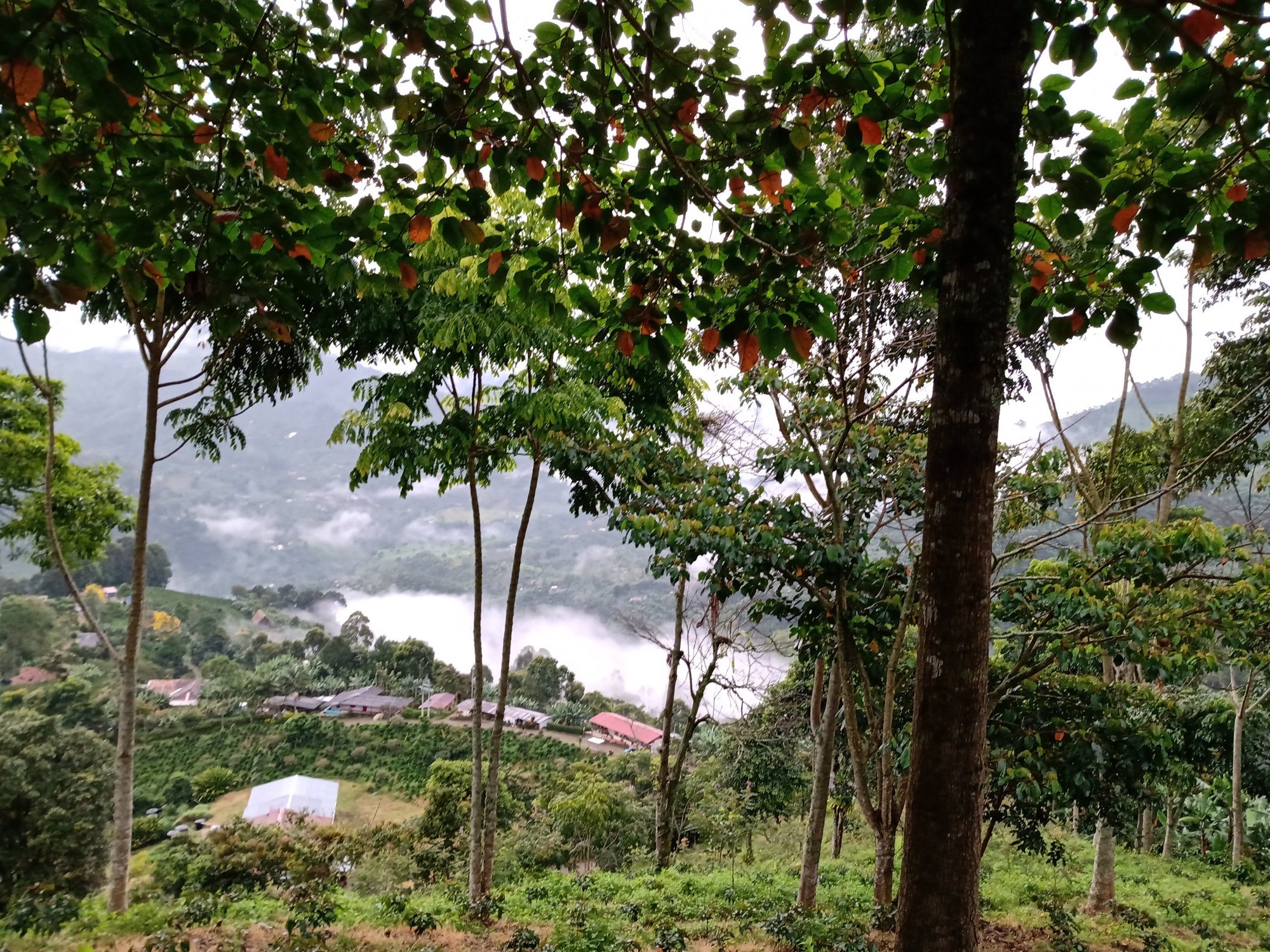
REGION : Neiva y Planadad, Tolima
ALTITUDE : 1700 MASL
VARIETAL : Caturra & Castillo
PROCESS : Washed
The coffee community that is part of Tolima Organic consists of farmers who own farms ranging from 2 to 10 hectares at an average altitude of 1700 m.a.s.l. These farms are located in Planadas and Neiva in the Tolima department.
The Tolima Grande Organic program is designed to promote more sustainable coffee farming through various organic practices. Through diverse agricultural training sessions, our coffee partner, Faro, aims to enhance the skills and knowledge of our coffee farmers. This enables them to produce excellent organic coffees, face the challenges of climate change, and make the most of their land by managing it in the best way possible.
Organic coffee farming is gaining traction for several reasons. Firs, it eliminates the use of chemical fertilizers and pesticides, relying instead on natural methods to maintain soil fertility and control pests. This not only preserves the local ecosystem but also produces coffee that is free from chemical residues. Additionally, organic farming helps in building sustainable soil, which is crucial for long-term agricultural success, especially in the face of climate change.
Organic coffees are well recognized in the market, providing farmers with a potential premium for their crops. This financial incentive, coupled with training and support, encourages more farmers to adopt organic practices.
By focusing on organic coffee production, growers in Tolima are not only improving their own livelihoods but also contributing to a larger movement towards sustainable agriculture.
After sorting the best cherries of the harvest, the coffee undergoes a second hand-sorting stage where any defective cherries are removed. The selected cherries are then de-pulped and fermented under anaerobic conditions for 60 hours.
After the anaerobic fermentation is complete, the beans are washed to remove any remaining mucilage. They are then placed on concrete patios to sun-dry for 8 days. During this time, the beans are regularly turned to ensure even drying. The drying process continues until the coffee reaches the ideal moisture level of 11.5%, critical for preserving quality and flavor during storage and shipping.
By controlling the fermentation and drying processes meticulously, our coffee achieves exceptional quality and unique flavor profiles in this washed processed, making this lot stand out in the specialty coffee market.

As the fourth largest country in South America, and the third largest coffee producer in the world, there is no mistaking Colombia’s presence in not only scale, but also skill. The country offers a landscape of contrasts; mountains, forests, coastlines, and micro-climates that work to produce some of the world’s most recognisable coffee.

Once the world’s largest producer of washed coffees, Colombia has had to re-energise the coffee sector after a 2009 case of Leaf Rust decimate much of the production. Thanks to large investment, disease resistant varietals of coffee trees have been planted, and volume has increased from a low of around 7.5million bags to over 12 million in 5 years. Colombia used to produce only washed Arabica coffee, from three main geographical areas trisected by the Andes mountain range. Regional coffees have become increasingly popular and are demonstrable of the distinct flavour profiles available throughout the nation. Coffees are typically mild bodied (hence the categorising term ‘Colombia Milds’), with crisp acidity and citric sweetness.
Your cart is currently empty.